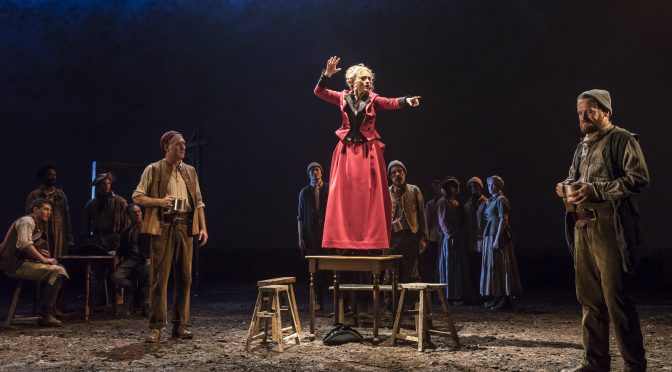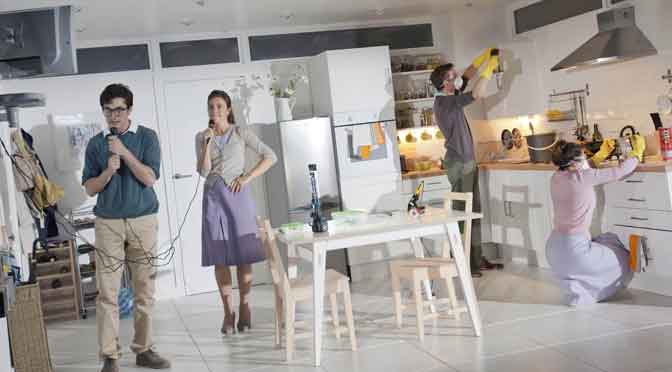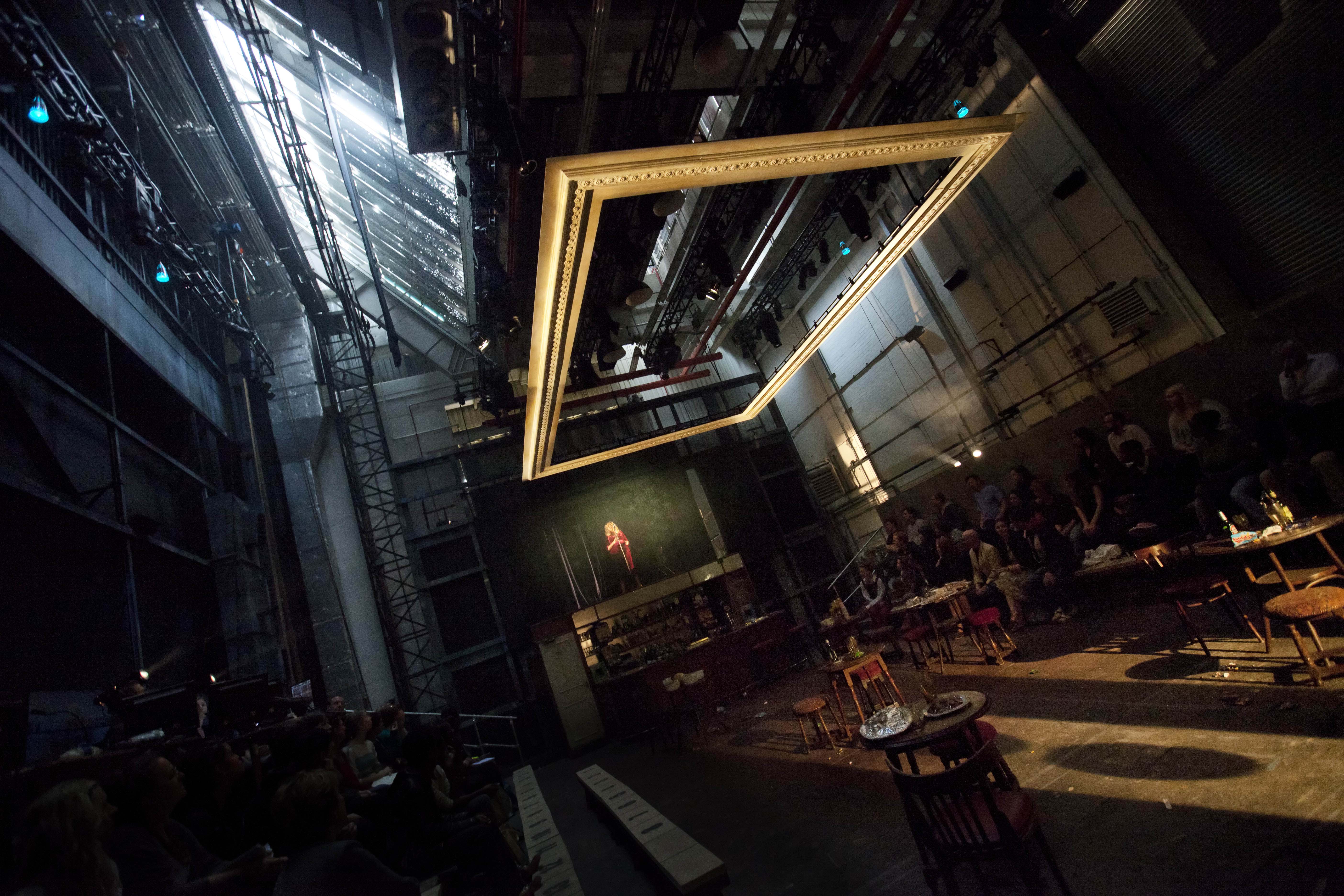With big subjects, a huge cast, and the Olivier stage to play with, DC Moore’s new play aims at being epic – and, up to its interval, it feels as if it might be. The twisting plot, following the story of Mary, brilliantly portrayed by Anne-Marie Duff, is an interesting mix of melodrama and the supernatural. The language, combining old and new vocabulary, odd syntax and lots of swearing, makes the text original, satisfyingly dense and a great deal of fun.
Set in the early 18th century, the play’s first topic is the enclosure of common land and one community’s struggle to prevent this devastating policy. The dramatic potential and importance are clear – a description of enclosure as “a dry word with a sharp end” is great – but the play seems embarrassed by its subject matter. Painful metatheatricality is thrown in with an overt disavowal of “dry historical accuracy”. But facts are fine, really – a bit of history won’t hurt a play.
Common is more interested in the superstition that filled agricultural communities. Director Jeremy Herrin goes to town with some Wicker Man horror that makes one gory scene especially good. The costumes and lighting, by Richard Hudson and Paule Constable, fit well. But there’s little sense of anything else – despite a subplot about incest that… well, I guess must have some point to it. As the action boils over, interest cools: the plot is abbreviated and the sign off comes across as trite. There’s too little concern for anyone apart from Mary, who overpowers the play. Cush Jumbo as a former lover and Tim McMullan as the local landowner have a go, but Duff is left to propel all.
However uneven, Mary is a brilliant creation that Duff makes a joy to watch. A romantic rogue (her self-description is a good deal more colourful) returning to the country after a debauched life in London, Mary’s psychic abilities and supernatural invincibility batter credulity – even before a crow starts talking to her. But like all devils Mary gets great lines – Moore’s expletive-ridden insults are quite something. It’s a shame the “jigsaw” of Mary’s story isn’t solved satisfactorily. Too quickly moving from the people’s saviour into a “blight” ruining their lives, the role is overburdened – and since Mary is the only thing rooted in the play, the overall harvest is poor.
Until 5 August 2017
Photos by Johan Persson



